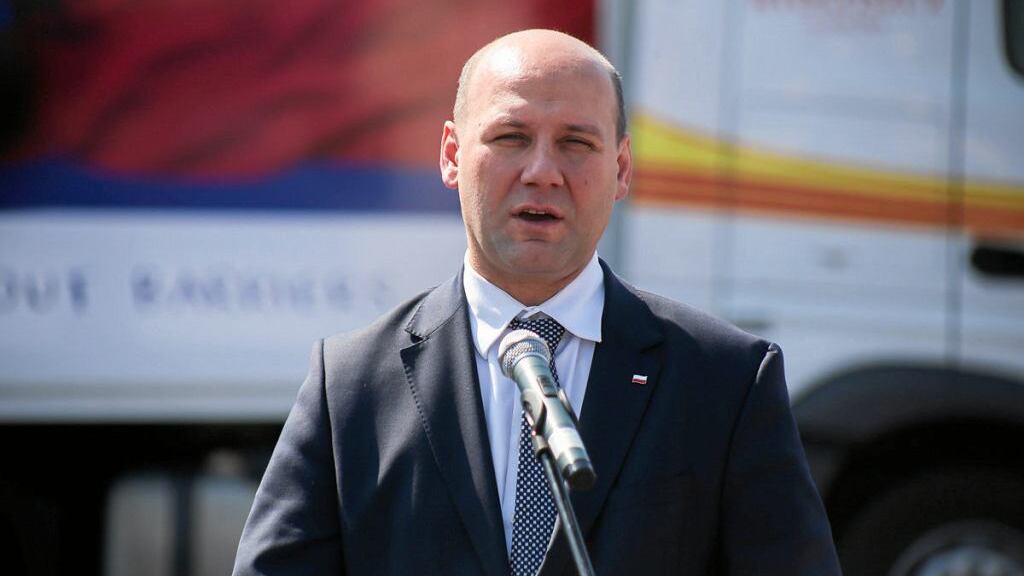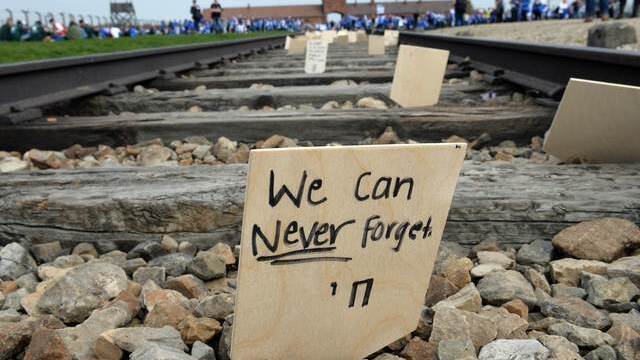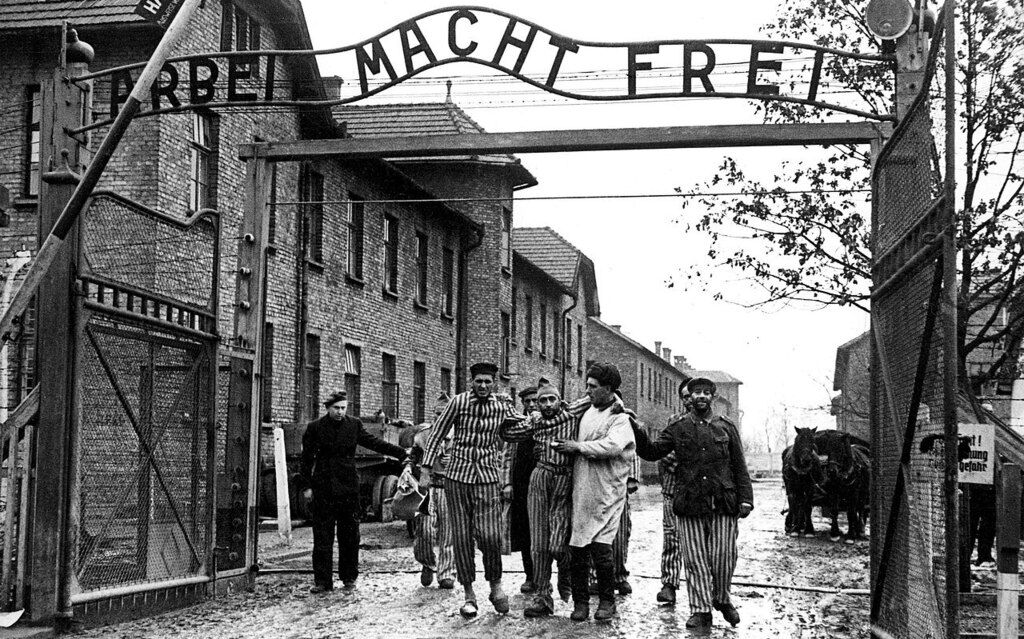The Auschwitz-Birkenau state museum said Monday that damage was done by a New Yorker article that explores efforts to stifle Holocaust scholarship in Poland, a piece the museum had originally accused of containing lies about Poland's role during World War II.
The text was amended on Monday to clarify some wording in a subheading, though the magazine and author said they stand by the article itself that argues that legitimate debate by historians about some Poles' alleged complicity in the Holocaust is being stifled by the current ruling party in Poland.
5 View gallery
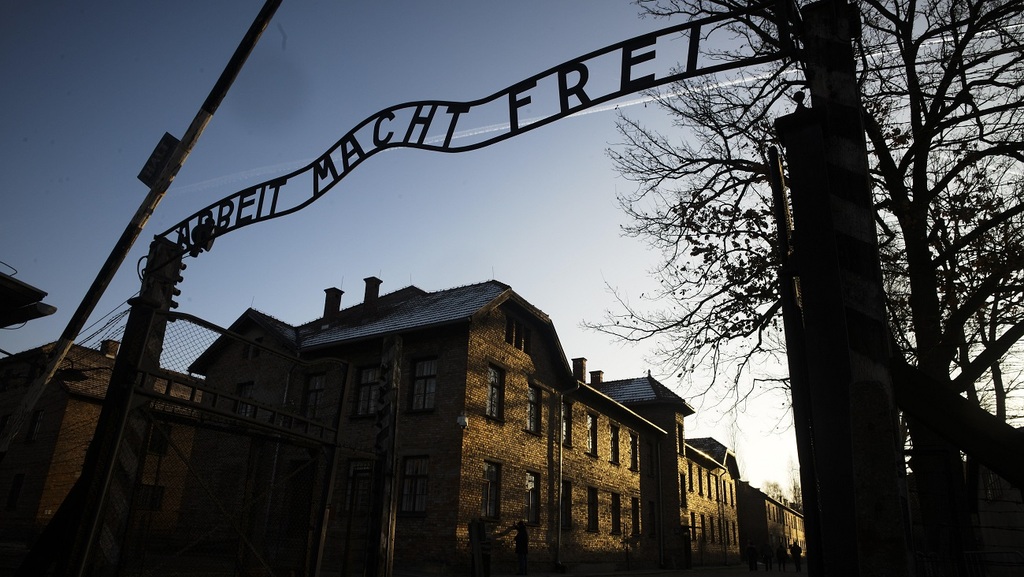

The infamous gate at the entrance to the Auschwitz death camp. The sign reads: 'Work sets free'
(Photo: AP)
Auschwitz museum director Piotr Cywinski welcomed the editing changes, but he said in a statement to The Associated Press that he felt that since "painful damage has been done, an apology should follow the correction."
The government also reacted on the weekend, with a deputy foreign minister, Szymon Szynkowski vel Sek, saying "this manipulation will be the subject of a strong reaction from Polish diplomacy."
The Auschwitz museum is located in southern Poland, which was under German occupation during the war. Today it is a Polish state institution that acts as the custodian of the remains of Nazi Germany's most notorious death camp and as a defender of historical memory.
It spoke out sharply on Saturday after the New Yorker on Friday published an article by Masha Gessen which looks at the case of two Polish historians of the Holocaust who were recently found guilty by a Polish court of defaming a deceased wartime village official.
The key point of contention involved the original subheading, which said: "To exonerate the nation of the murders of three million Jews, the Polish government will go as far as to prosecute scholars for defamation."
Some 3 million Polish Jews were killed during the Holocaust, but the vast majority were directly murdered by Adolf Hitler's occupying Nazi forces in Poland. A Polish underground army resisted the Germans, and the Polish state, unlike some other occupied nations, never collaborated with the Nazis.
In his weekend statement, Cywinski had said the original article contained "so many lies and distortions that I find it a bit hard to believe that it is a coincidence."
"Furthermore, when it concerns the Holocaust, any distortion of historical truth is very dangerous. This applies to all forms of denial, revisionism and deformation of historical truth," Cywinski said.
The original passages were amended to say: "Scholars face defamation suits, and potential criminal charges, in the Polish government's effort to exonerate the nation of any role in the murders of three million Jews during the Nazi occupation."
A New Yorker spokesperson said the magazine changed the subheading "to more accurately reflect the contents of the article, which we stand by."
Earlier Gessen had sent a statement to a Polish newspaper saying they had gotten hate mail and death threats over the article.
Gessen also argued that the original wording had been misinterpreted and that the uproar in Poland reflected the climate surrounding debates about the Holocaust in the country.
"What I have seen in the last couple of days, since the publication of my short piece thousands of miles away from Poland, is the very opposite of a climate in which intellectual inquiry and nuanced story telling are possible," Gessen wrote.
There is an ongoing controversy in Poland over the degree to which Poles either helped Jews, acted as bystanders or abetted the German killings in the case of tens of thousands of Jews who managed to escape the ghettos.
It is a hugely sensitive issue in Poland, with the Poland's nationalist authorities keen to stress Polish heroism and discourage explorations of Polish wrongdoing.
5 View gallery
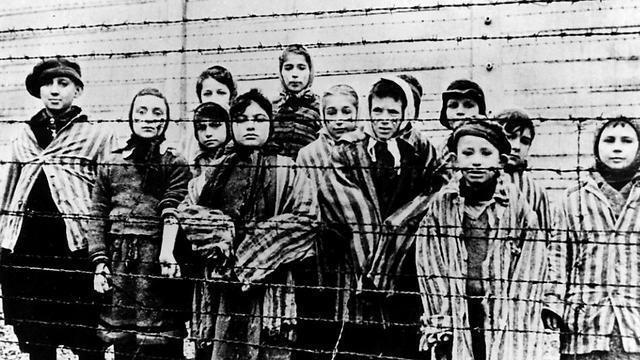

An image of child prisoners taken at the Auschwitz death camp in Poland by liberating Soviet forces in 1945
(Photo: AP)
David Harris, the CEO of the American Jewish Committee, said Sunday that the article's original subtitle was "defamatory."
"Germany -- and Germany alone -- was responsible for the Nazi death camps, from Auschwitz to Treblinka," Harris wrote on Twitter, adding that "the infamous words at Auschwitz --'Arbeit macht frei' -- were written in German, not Polish. And that must never, ever, be forgotten."
On Monday, Harris said in a statement emailed to the AP: "We're pleased The New Yorker was responsive to our concern about the problematic subtitle -- and the false impression it created about the Polish, as opposed to the German, role in the Holocaust."
"There are other serious issues with the article in the same vein, but this change is a step in the right direction," Harris said.


